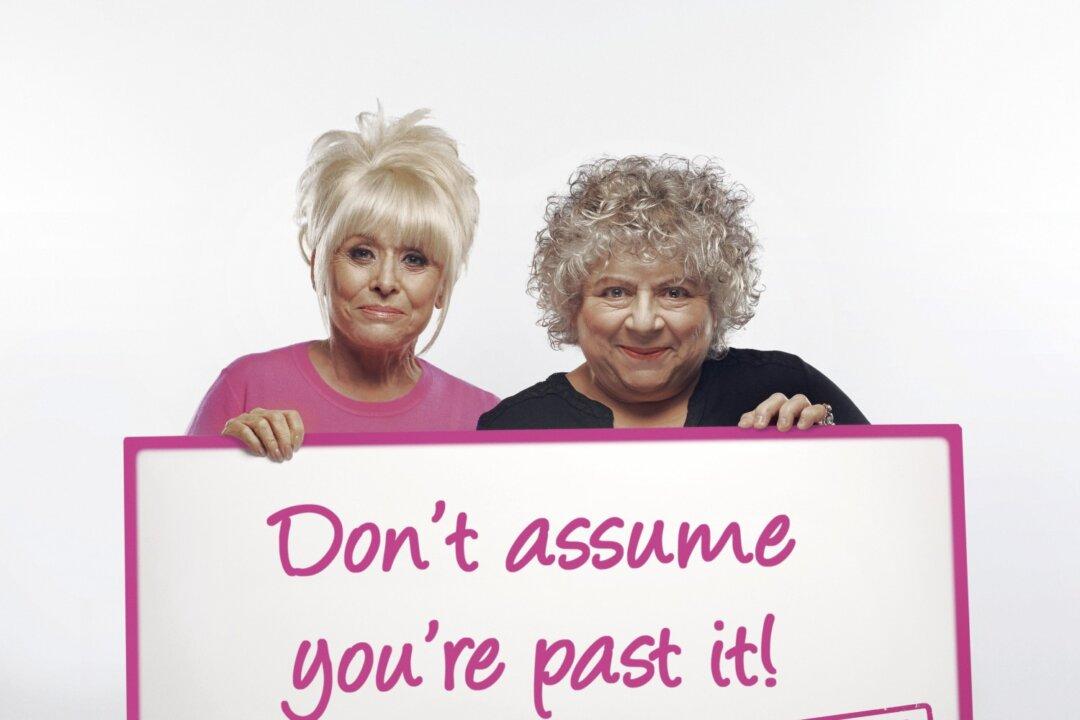“Don’t assume you’re past it” is the message to older women to get checked for breast cancer as a new British awareness campaign is launched.
Women in their 70s make up one-third of all breast cancer cases, and more than half of those are dying each year, according to government figures.
Yet, new research reveals that two out of three women aged 70 and over are unaware that breast cancer risk increases with age, and are also ignorant of the signs and symptoms of the disease.
The Be Clear on Cancer campaign, run by Public Health England (PHE), is urging women over 70 to regularly check their breasts and if they see any change to their nipples, skin or shape of their breasts, or have pain in their breasts or armpits, they should immediately go to their GP.
Experts are concerned that older women may be neglecting to check for changes or recognise symptoms other than a lump.
Dr Yvonne Doyle, regional director at PHE, stressed the need for older women to increase their awareness of breast cancer and if necessary seek medical advice.
“One in 3 women who get breast cancer are over 70, so don’t assume you’re past it or dismiss any symptoms as a sign of ageing,” she said in a statement.
Samia al Qadhi, chief executive of charity Breast Cancer Care (BCC), welcomes this “important” campaign.
“So many older women with breast cancer we support tell us they have previously been unaware that breast cancer risk increases with age,” al Qadhi said in a statement. “Our report, ‘Improving outcomes and experiences for older women with breast cancer’, and our extensive breast awareness work targeting this group demonstrates that many don’t feel confident about detecting breast changes.
“The more women we can reach with Be Clear on Cancer, the better.”
Poor awareness of increased risk with age may be partly due to NHS breast screening invitations usually stopping at 70, although women over 70 are still entitled to free screening.
The six-week PHE campaign, running adverts on TV and in the press, is supported by celebrity women, also in their 70s.
TV soap star, 76-year-old actress Barbara Windsor, whose EastEnders character Peggy Mitchell was diagnosed with breast cancer, came to realise the importance of an early diagnosis while meeting women affected by the disease during her research.
“You get to a certain age and think you’re too old for some things, but breast cancer isn’t one of them,” Windsor said in a statement.
Veteran stage and screen actress, 72-year-old Miriam Margolyes OBE, an enthusiastic supporter of the initiative, was surprised at the high number of diagnoses among the over 70s.
“My advice: be vigilant and get checked out if you’re concerned – it could save your breasts and your life,” she said.
Edna, now 80, was “breast aware” and found a lump high up on her left breast when she was 75.
“I went straightaway to the GP and was referred five days later to a hospital cancer unit. I’ve been very lucky that it was caught early with no involvement of lymph nodes at all,” she said in a policy report by BCC.
Sean Duffy, national clinical director at NHS England, admitted, however, that Britain is “losing far too many older women to breast cancer” and lags behind other European countries, such as Sweden.
“In 2009 it was estimated that around 2,000 deaths from the disease could be avoided each year in England if survival rates matched the best in Europe,” he said in a statement.
About 13,500 women aged 70 and over are diagnosed with breast cancer in England each year, yet survival rates are lower in this age group compared to younger women.
Early diagnosis is a key factor for survival. More than 90 per cent of all women diagnosed with the earliest stage survive for at least 5 years, according to PHE.





